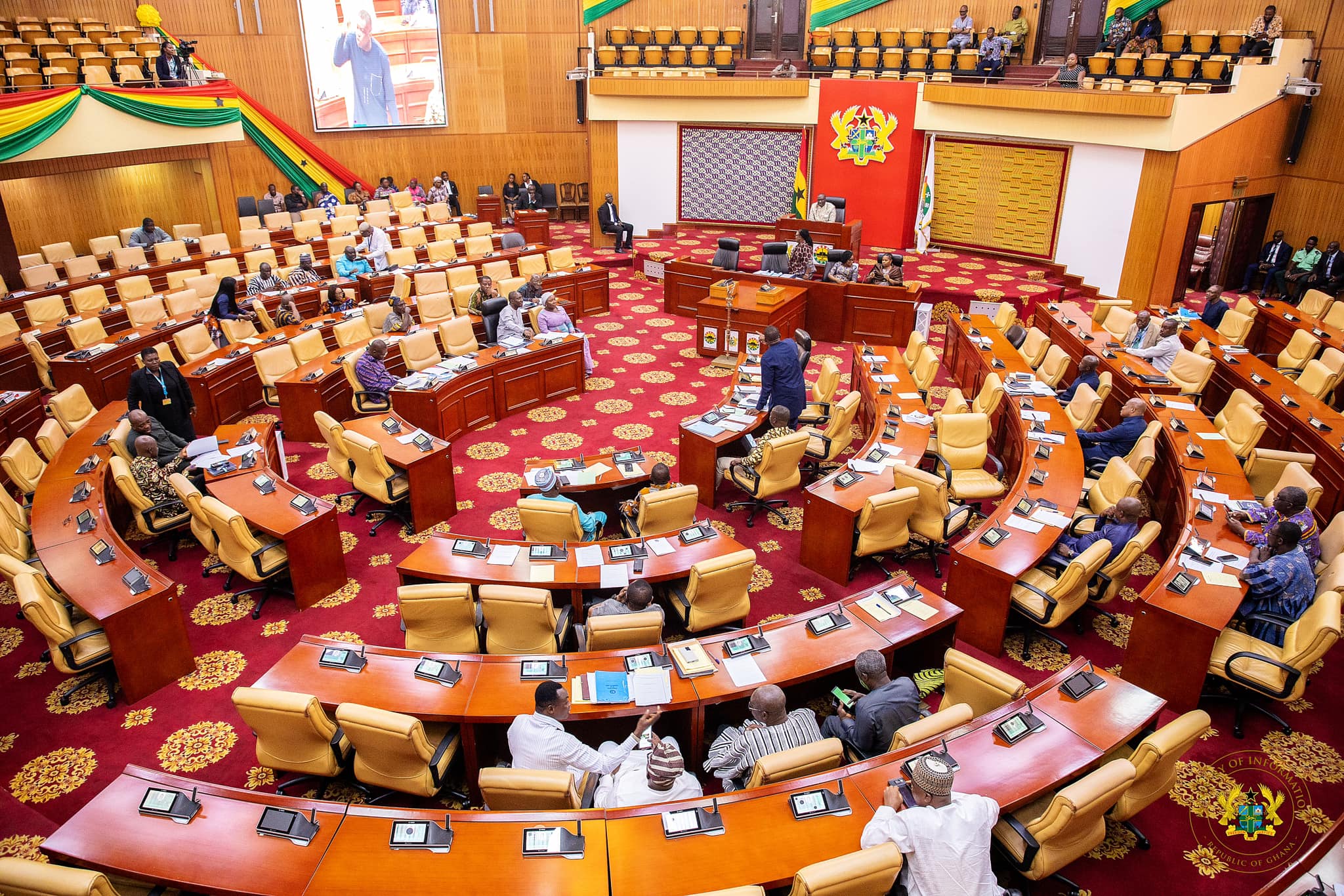
Ghana’s Parliament has approved seven new justices to the Supreme Court in a controversial move that deepens political divisions and sparks concerns over judicial independence.
The appointments—marking the most significant expansion of the court in over a decade—were confirmed by voice vote despite a full boycott by the opposition New Patriotic Party (NPP).
The nominees, selected by President John Mahama, include Justices Sanyo Dzamefe, Dennis Dominis Adjei, Gbeil Simon Suurbaareh, Philip Bright Mensah, Janapare Bartels-Kodwo, Hafisata Amaleboba, and Kweku Ackaah-Boafo.
All were endorsed by the Appointments Committee after what was described as thorough vetting sessions.
Presenting the committee’s report, Chairman Bernard Ahiafor praised the nominees for their “exceptional legal competence, judicial temperament, and constitutional fidelity.”
He noted that several candidates, including Justice Mensah, stood out for their insightful perspectives on complex legal matters such as digital evidence and land rights.
However, the NPP minority, led by Alexander Afenyo-Markin, vehemently opposed the process.
“This is not about competence—it’s about timing,” he said, accusing the government of exploiting the current suspension of Chief Justice Gertrude Torkornoo to shift the court’s ideological balance.
“It is a strategic move to pack the bench while the judiciary’s leadership is compromised.”
Constitutional law expert Professor Clara Kasser-Tee countered the criticism, citing a backlog of 347 cases—some involving election disputes—that required urgent attention.
“The judiciary must function. These judges bring years of jurisprudential integrity, and their elevation is a matter of necessity, not politics,” she stated.
The newly appointed justices, drawn from the appellate and high courts, will face immediate pressure, presiding over pivotal cases tied to electoral law, constitutional interpretation, and environmental regulation.
Their confirmation comes amid growing concerns over democratic backsliding in parts of West Africa, where judicial institutions have been increasingly targeted or sidelined by regimes.
Governance analyst Dr. Kojo Pumpuni Asante warned that even in a stable democracy like Ghana, perceptions of executive interference can erode trust. “This expansion must prove its legitimacy through rulings.
The justices’ independence will be tested not by who appointed them, but by whether they can rule against those who did.”
With the appointments now finalized, the spotlight shifts to the bench itself—a body now tasked not only with interpreting law, but also with preserving public confidence in Ghana’s democratic institutions.



